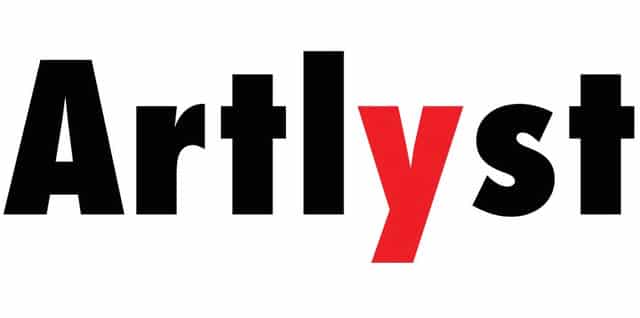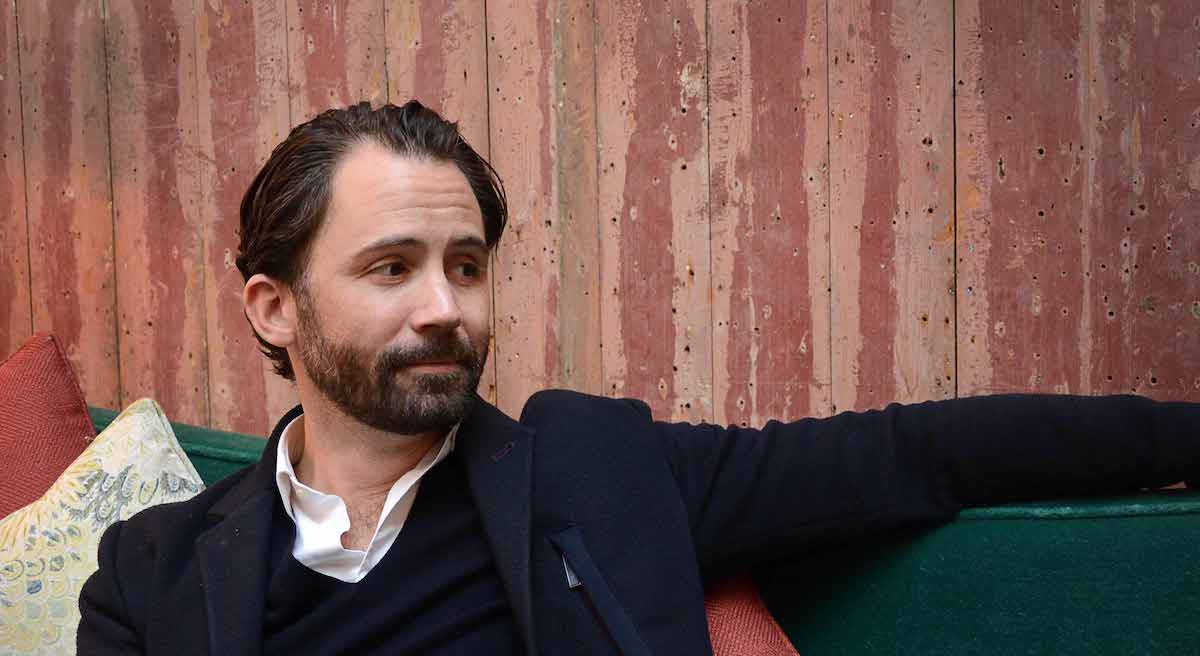Lee Cavaliere is currently experiencing the busiest point of his career. He has worked tirelessly through the COVID crisis, as founder of The Sixteen Trust, an arts and education charity which has launched a mentoring programme bringing art professionals into schools in economically deprived areas. This is a way of guiding young people towards fulfilling careers in the creative arts. He is also an integral part of VOMA curating the world’s first online museum, to be launched in late 2020.
AL: Tell us a little bit about the Sixteen Trust and how it came about?
Lee Cavaliere: I have always been slightly allergic to the perception of the arts as some kind of magic anti-poverty bullet that solves local economic deprivation and ignites regeneration. Even in a place like Margate, which benefits from having Turner Contemporary and a thriving bottom-up arts scene, there are only limited ways to engage with the truly disengaged.
You have real problems in areas like this, there’s generational unemployment, and a disenfranchised population who haven’t seen any evidence that education will benefit their well-being or future opportunities. I thought what was needed was a support network for young people – somebody to show them what they can achieve, how their own interests might be supported and how their efforts could bring joy to broad audiences through the arts.
As young people don’t necessarily have the means to travel, it seemed the best way to catch them was to go where they go – to their schools. It also seemed sensible to aim at pre-16, to give them extra support in case they don’t do well at GCSE. While the Head, Matt Tate, is turning the school around, Hartsdown Academy had the worst GCSE results in England last year.
I spent a couple of years speaking to the councils, charities and schools locally to identify what was missing, and it seemed that a sense of aspiration was critical; so thought that a mentoring programme was an excellent place to start – introduce young people to successful individuals across the arts, to inspire and provoke ideas; this way they can take ownership over their own education and careers. Teachers often expressed frustration with the linear nature of the curriculum, and this is a way for students to learn in a cross-curricular fashion; theatre set design is engineering, design and woodwork based on English literature, for instance.
AL: How is the mentoring programme going to work in the age of COVID?
Lee Cavaliere: We made a start assuming that we would have no in-person contact this school year. We asked the first mentors to make videos to explain their work and introduce their worlds. We’ve come up with something of a menu of offerings for students – there are group and one-to-one mentoring sessions, set out over the course of a school year. These are designed so that they can be in person or via video, and for contact to be regular.
It depends on the mentor, of course – we’re working with four, to begin with: Set and prop stylist Nicola Bell, architect Sam Causer, Tate’s Head Technician Mikei Hall and Costume Supervisor Helen Johnson. Law firm Mishcon de Reya is devising a brilliant project around an art restitution case, which will be delivered in videos and live feedback sessions. They’re all devising different projects to give a real-world experience for the students. We’re hoping that we can run trips later in the school year. However, for now, I’ve been very excited by the way COVID has finally taught the art world that the possibilities of remote communication technology. Students are the experts in this field.
AL: The programme kicks off in Margate are their plans to expand it nationally?
Lee Cavaliere: It seemed best to start small, to engage a particularly challenging school and to expand from there. We’re already speaking with several schools in the area, as well as further south as far at Folkestone and Hythe, and East as far as Hackney. We have a world-class project manager, Natasha Britton, who has packaged the programme up really well; in a way that is both adaptable to the circumstance and personality of each school and portable enough to carry elsewhere – that way we can expand and adapt nationally. I’m in conversation with other education groups as far away as Gateshead and Carlisle.
AL: It is fantastic that you have secured the patronage of Tracey Emin and Jeremy Deller how hands-on will they be with the project?
Lee Cavaliere: Tracey and Jeremy were amazing – they both offered works for sale in the initial fundraiser, which sold (of course), and that kickstarted the whole thing. The exhibition was of former Turner Prize artists and featured Damien Hirst, Douglas Gordon and others alongside works from students from Hartsdown. Tracey Emin has always been a huge voice for Margate, and her old school, King Ethelbert, is one of the schools we hope to work with. Jeremy Deller has been a powerful voice for social justice and really stepped up to the plate. We hope to continue our association as their support has been invaluable.
AL: I have visited the Hartsdown Academy and think it’s a great space with so much potential, will you be creating an inspiring programme just for The Sixteen Trust or can others join in and benefit from what you have to offer?
Lee Cavaliere: We’re full of ideas of how to expand the remit of the Sixteen, and now funding avenues have started to open up. I was really moved by how impactful the exhibition last year was for the students. Having their work seen by over 7,000 people, exhibiting alongside Tracey Emin, Jeremy Deller and the others…it was a significant moment and I would like to expand on that. I want to put art in the hands of these young people; I think more than ever we need to be hearing from as diverse a range of voices as possible and the art world is still shamefully narrow.
AL: I have heard through the grapevine that you are involved in VOMA the first virtual museum, could you elaborate on your role and what VOMA is all about?
Lee Cavaliere: I was appointed Director of VOMA a few months ago, and am developing the exhibitions and events programme. It’s an incredible opportunity to reach, and hear from, diverse audiences, and is actually very much in line with the ethos of the Sixteen, which is presumably why Stuart Semple, who founded the project, asked me to get involved. He and I share a desire to open the arts up to more people and break down some of the perceived barriers to enjoying, learning and contributing.
VOMA is a beautiful, architect-designed virtual space, free to all, with several galleries, showing works from throughout the history of art. The current show has well-known historical artists like Caravaggio, alongside more emerging names like Amartey Golding; we’ve got a fantastic room, co-curated with Abe Odedina, who placed his works opposite Manet’s Olympia. The platform for cross-historic discourse is enormous. We’re also able to commission new works and have started this programme with a really groundbreaking piece by Phoebe Boswell, which we’ll be unveiling when we launch the browser version.
It’s an excellent opportunity to look at the idea of a museum; what it represents, what we want it to be. I feel museums are constricted by everything from logistics to tradition to bureaucracy; they are answerable to all of these things and that limits their agility. Funding is an expansive issue, particularly when it’s revealed to come from questionable sources. We see too many stories of the voice of the artist or even museum being overwhelmed by all this machinery. We are hoping to break open this model a little and to start listening. Culture is a living, breathing organism and VOMA aims to be a hub for discussion and debate. – END
Lee Cavaliere is a contemporary art specialist and curator, based in London. Following several years working with the Tate’s Collection displays, he moved on to the commercial sector, delivering contemporary exhibitions programmes at Max Wigram Gallery and the Fine Art Society on Bond Street, London. He co-founded CoLab, an international collaboration between galleries, showing works on paper online through the website www.thecolabsite.com. He is Director of VOMA, the world’s first online museum, to be launched in the Autumn of 2020.
The Sixteen Trust’s first mentors will begin a year-long engagement with the school, delivering projects and offering one-to-one and group mentoring sessions. The programme kicks off at Hartsdown Academy, located in Margate.
The project has been brought together with the support of private backers and artist patrons such as Tracey Emin and Jeremy Deller.
Some of the poorest wards in the UK are situated in Thanet, and the Sixteen Trust was set up to drive inspiration through the arts, and tackle extreme levels of deprivation and low social mobility by allowing young people to meet professionals and learn about practical opportunities within the arts.


